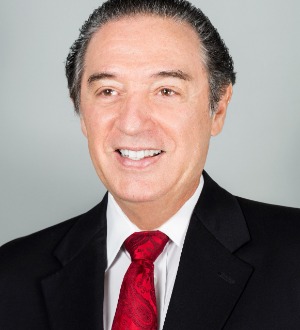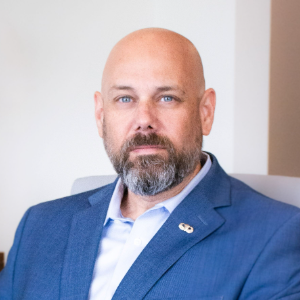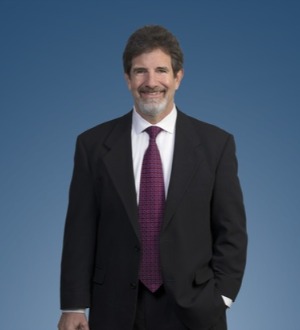The common belief amongst employees is that non-compete and/or non-solicitation agreements are disfavored and not enforceable. However, the Courts in Ohio have enforced these restrictive agreements under certain circumstances. Before you assume that your non-compete or non-solicitation agreement is not enforceable, you should read this article and talk to an employment attorney.
When you started your employment, you probably signed a whole bunch of documents and one may have included restrictions on what you can do after your employment ends. These restrictive contracts are generally referred to as Non-Compete and/or Non-Solicitation Agreements.
After working for your employer for some time, you may be thinking about resigning to pursue other opportunities. Could your non-compete agreement actually effect your ability to work where you want? Are you able to challenge the enforceability of the non-compete and non-solicitation agreement in Ohio?
Many employees in numerous fields are subjected to non-compete agreements. If you signed a non-compete agreement at the beginning of your employment, at any time during your employment, or even as part of a severance agreement at the end of your employment, this could negatively impact your ability to earn a living after you leave your employment. Our Columbus, Ohio employment attorneys explain what you need to know about Ohio non-compete law and how you can challenge the enforceability of your non-compete agreement.
Non-Compete Agreements: The Basics
Employers (too frequently) require employees to sign non-compete agreements in order to curtail the employee’s ability to compete with the employer or solicit the employer’s customers after his or her employment ends. If an employee violates the terms of a non-compete agreement, the employer may file a lawsuit for breach of contract against the former employee and seek to have the court immediately enforce the non-compete agreement (eg. Temporary Restraining Order or Preliminary Injunction).
However, not all restrictions are enforceable. The restrictive provisions of the non-compete agreement must be reasonable, and courts will only enforce non-compete agreements to the extent necessary to protect the employer’s “legitimate business interests.” If this requires the court to reduce or otherwise edit or remove terms in the non-compete agreement, it will do so.
It’s important to note that even if the terms of your non-compete agreement are unreasonable, your employer can still file a lawsuit against you if you violate its terms. Judges have a lot of discretion when it comes to this type of employment litigation. The court may narrow the scope of your non-compete agreement such that it will no longer unreasonably burden you, but this process takes time, and your employer can seek an injunction preventing you from working elsewhere until the court rules on the enforceability of your non-compete. Therefore, you should be proactive about addressing issues related to your non-compete agreement with your Columbus, Ohio non-compete attorneys before they arise.
Challenging the Enforceability of a Non-Compete Agreement
To enforce your non-compete agreement against you in Court, your employer must be able to prove that the restrictions in the agreement: (1) are no greater than necessary to protect its legitimate business interests, (2) do not impose an undue hardship on you as the employee, and (3) are not injurious to the public. The first two elements of this test require the court balance the employee’s interest in being able to earn a living with the employer’s interest in protecting its business. Courts also consider several other factors when evaluating the reasonableness of a non-compete agreement, including:
- The geographic and temporal limits placed on the non-compete agreement;
- Geographic: Non-compete agreements typically limit the geographic scope of its restrictions, such as a 5-mile radius from the employer’s business.
- Temporal: Similar to geographic restrictions, non-compete agreements typically specify a timeframe the agreement will be in effect, such as for one year after the employment is terminated.
- Whether the former employee was the sole or primary customer contact while working for the employer;
- If you are the primary customer contact during your employment, then your employer has a stronger argument that they are at risk of losing those customers to you when your employment terminates
- Whether the employee possesses confidential information or trade secrets;
- Whether the non-compete agreement seeks to restrain unfair competition from the employee or merely ordinary competition;
- Ordinary Competition: Two neighboring doctors offer competitive discounts to persuade patients to join their practices
- Unfair Competition: Doctor A works for Doctor B and establishes a client base in Doctor B’s office. Doctor A leaves Doctor B’s employment and persuades his clients to leave Doctor B’s office as well
- Whether the non-compete seeks to stifle the skill and experience of the employee;
- Is the non-compete agreement restricting you from using skills developed on the job only, or does it also restrict you from using pre-existing skills you brought with you when you were hired?
- Whether the non-compete restricts the employee’s sole means of support; and
- The typical standards for non-compete agreements in the industry
- Does the field you work in typically use non-compete agreements? If so, has a general standard emerged regarding non-compete restrictions?
In addition, courts also evaluate whether enforcing your non-compete agreement would be “injurious” to the public such that it would harm third parties. For example, if a doctor is subjected to a restrictive non-compete agreement, this could prevent her from practicing medicine until her non-compete agreement expires. If there are fewer doctors available to the public, this will be “injurious” to the public since patient access to medical care would be jeopardized.
Each non-compete agreement is different, and a thorough review of the specific facts is necessary to determine your obligations under the agreement and whether it would be enforceable in court. If your employment is subject to a non-compete agreement and you have specific questions or concerns, or if you’d like an in-depth review of your non-compete agreement by one of our employment attorneys, please reach out to an experienced employment attorney and Mansell Law.
Mansell Law
Employment Attorneys representing individuals throughout Ohio


























